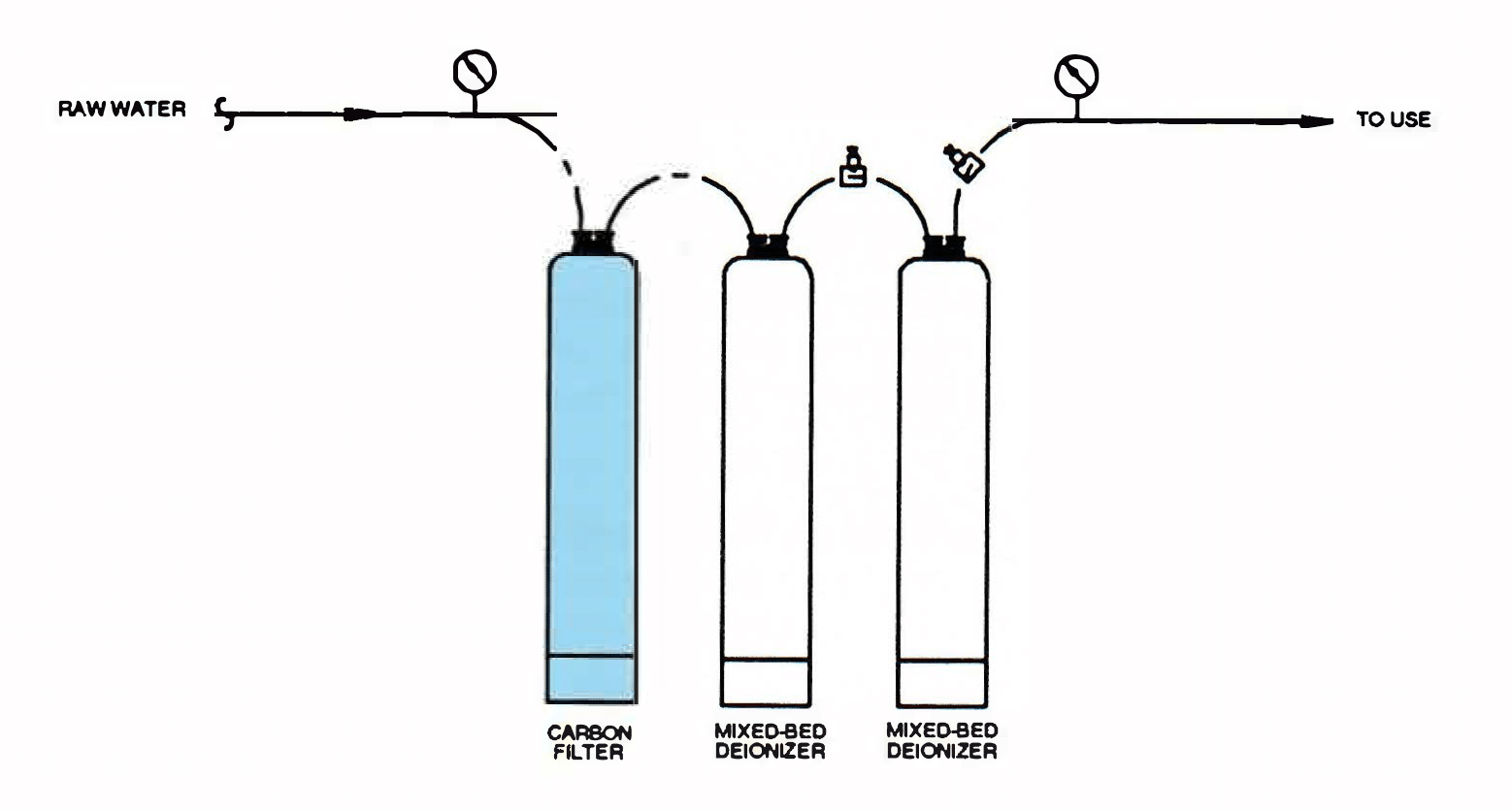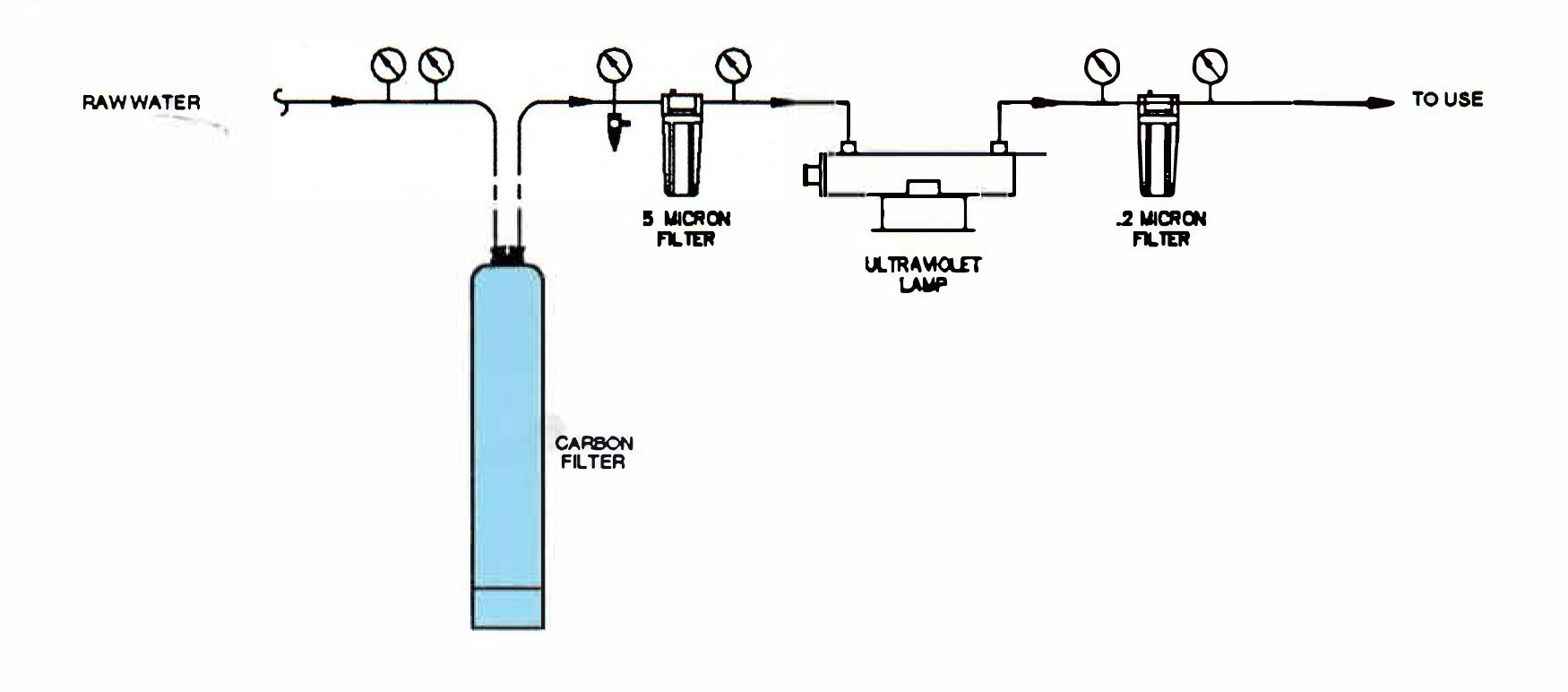What Can Carbon Remove?
What Can Carbon Remove?
What Can Carbon Remove?
When searching for the answers on what carbon can remove from water, first look at why it is important to purify water. In all uses, industrial, commercial, individual, and universal, clean water is the lifeblood of the planet. The use of carbon as a filter dates back centuries and has been a part of the water purification process. The following are some examples of what carbon can remove.
ORGANIC REMOVAL
It has been considered common knowledge that the presence of many species of organic matter in a water supply may have a negative affect the performance of your water purification system. Organic contaminants can hinder the anion-exchange mecha-nism of the resin in a deionizer system. This occurence can significantly affect the ability of your on-site deionizer to produce high-quality water and consistent water purity and reduce the total capacity of the deionizer.
These raw organic contaminants can also severely affect reverse osmosis membranes by causing irreversible mem-brane fouling and reducing both production capacity, and product water quality.

ORGANIC REMOVAL
The use of activated carbon can be used for free chlorine removal or dechlorination of water. The chlorine removal process is different than with organic compound adsorption. Chlorine removal from water involves a chemical reaction of chlorine
with carbon to form chloride ions which are non-oxidizing. The harmless chloride ions can easily be removed by a reverse osmosis membrane or deionizers.
Without the use of activated carbon in a deionizer purification system, the chlorine will oxidize any resin, causing the breakdown of the physical structure of the resin beads, resulting in greatly increased organics and particulates in the product
water from the deionizer. Chlorine will also affect most reverse osmosis systems by causing irreversible RO membrane
oxidation.
ORGANICS READILY ABSORBED
Aromatic solvents: Toluene, Benzene, and Nitrobenzenes
Chlorinated aromatics: Chlorobenzenes, PCBs, Chlorophenols, Chloronaphthalene, and Phenol
Polynuclear aromatics: Benzopyrenes, Acenaphthene, etc.
Pesticides and Herbicides: BHC’s, DDT, Aldrinchlordane, Heptachlor, etc.
Chlorinated nonaromatics: Chloroalkyl Ethers, Carbon tetrachloride, Hexachlorobutadiene
High molecular weight hydrocarbons: Dyes, gasoline, amines, humics
ABSORBED INORGANIC COMPOUNDS
Carbon help clear many inorganic compounds that have negative effects on multiple water treatment components that can be removed by
adsorption onto activated carbon. Heavy metals such as arsenic, mercury, lead, and fluoride can also be adsorbed onto granular activated carbon to prevent fouling of deionizers, softeners, prefilters, and RO membranes.
Most common cations and anions found in natural water are not adsorbed, such as orthophosphate, nitrate, calcium, sodium, or halides. These impurities can be removed by other various water treatment technologies.
CHLORAMINE REMOVAL:
In recent years the use of free chlorine as a disinfectant for municipal
water supplies has been increasingly replaced by the use of chloramines. This change was necessary because free chlorine can combine with organic chemicals in the water to form carcinogenic compounds known as trihalomethanes or TH Ms. The use of chloramines as a disinfectant minimizes
this THM problem. The mechanism of removal for chloramine is more complex than free chlorine and requires significantly longer contact
time to achieve high levels of removal. The Association for the Advancement of Medical Instrumentation recommends carbon filter specifications for chloramine removal in Hemodialysis applications:
* virgin carbon media with a minimum iodine number of 900
• a ten minute empty bed contact time
• a minimum of 12 x 40 mesh size
Use of Complete Water Solutions Carbon Filters will meet these recommendations for Hemodialysis.


